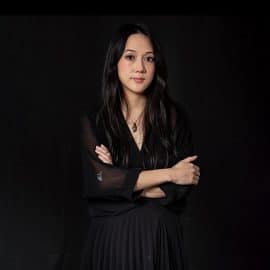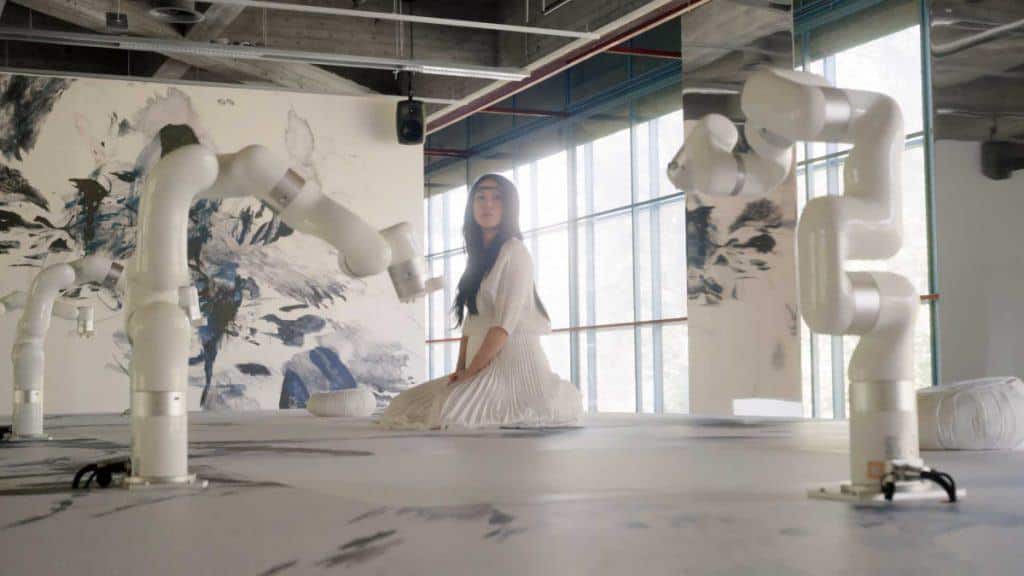


| Personal Brand Presence | 8 / 10 |
| Authoritativeness | 4 / 10 |
| Expertise | 6 / 10 |
| Influence | 7 / 10 |
| Overall Rating | 6 / 10 |
Chinese-Canadian artist and researcher Sougwen 愫君 Chung is the artistic director and creator of Scilicet, a London-based studio that investigates human and non-human collaboration. As a pioneer in the field of human-machine collaboration, Chung was a research fellow at MIT’s Media Lab. She studied the mark-made-by-hand and the mark-made-by-machine as a way to comprehend the dynamics of humans and systems.
Chung has won the Lumen Prize for Art in Technology, been named Woman of the Year in Monaco, been selected for excellence in the Arts & Sciences as Woman of the Year, been the first E.A.T. Artist in Residence in collaboration with New Museum and Bell Labs, received a commission for the project Omnia per Omnia, received the Excellence Award for Drawing Operations from Japan Media Arts, and was named one of Print Magazine’s Top 20 New Visual Artists. Furthermore, Sougwen Chung has been granted Artist in Residence roles at Google, Eyebeam, Japan Media Arts, Studio Wayne McGregor, Laurenz Haus Basel, and Pier 9 Autodesk.

The London House of Fine Art (HOFA) gallery is now hosting “Relational Gestures,” a new exhibition featuring pieces from Chung’s recent career. These pieces include their signature paintings created with robotic arms, AI models trained on their prior body of work, and biofeedback trackers. According to them, Chung’s approach has changed as robots and artificial intelligence have advanced. “Usually, I find something that interests me,” Chung remarked. Obviously, the theme of this painting series is meditation and biofeedback. The mobility of cities and open flow preceded it, as did the neural networks in use today.
The exhibition’s most recent pieces demonstrate Chung’s fascination with “new human-machine configurations that are connected to biofeedback.”
In order to produce these pieces, the artist wears an EEG headset that records their brainwaves as they meditate. In response to these biofeedback signals, robotic “assistants” utilize paintbrushes to trace patterns alongside Chung’s own brushstrokes. While Chung emphasizes teamwork in his approach to AI, the larger art community is debating the ramifications of the technology. According to Chung, there are several perspectives on the relationship between humans and artificial intelligence. As such, there is much room for discussion in this area. “I find work that is solely critical to be really interesting because it possesses a great deal of intellectual rigor as well as passion and heart.”
Solana has demonstrated strong performance, driven by increasing adoption, institutional interest, and key partnerships, while facing potential ...
Know MoreIn April 2025, the crypto space focused on strengthening core infrastructure, with Ethereum preparing for the Pectra ...
Know More